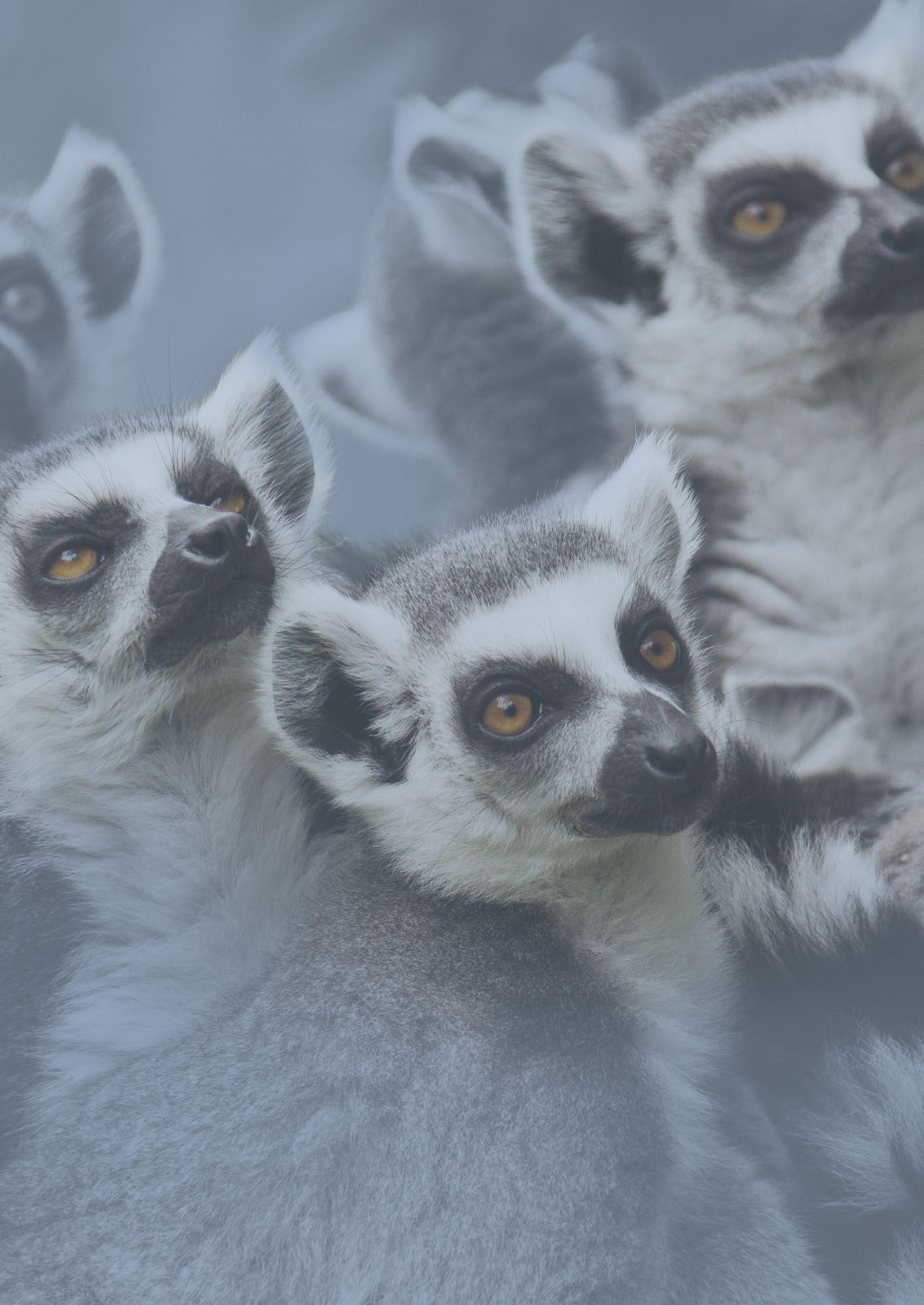

Annual Report 2024
Saving species from extinction
Annual Report 2024
© Wildlife Justice Commission
Johan de Wittlaan 7
2517 JR The Hague
The Netherlands
www.wildlifejustice.org
Chamber of Commerce: 62800248
DESIGN · batweb.es
Showcasing one of our key strengths: Agility
Project Galvanise: Strengthening Intelligence-led approaches
Ongoing disruption to ivory and pangolin scale trafficking networks in Nigeria
Breaking new ground in Marine investigations
Big cats: High-level trafficker arrested in South Africa
Advocating for global action against wildlife trafficking
Seizure: Our award-winning short film
In the media
Foreword
2024: A transformative year in the fight against wildlife crime
2024 was a transformative year for the Wildlife Justice Commission (WJC), marked by remarkable progress in our mission to disrupt and dismantle the transnational criminal networks trafficking wildlife, timber, and fish. From landmark arrests and convictions to strengthened policy influence, we have taken significant steps toward our vision of a world free from wildlife crime.
This year, our work expanded into new regions, with successful operations leading to significant seizures and arrests across Africa and Asia. We dismantled 16 transnational criminal networks and disrupted the illegal wildlife trade on a global scale. Working closely with our law enforcement partners, we supported 84 arrests and facilitated major seizures in countries such as Nigeria, South Africa, Mozambique, Thailand, Malaysia, and Indonesia, as well as across South America and Southeast Asia.
Our highly successful partnership with the Nigeria Customs Service continued, with our intelligence-led investigations enabling record-setting seizures and arrests, including the

Olivia Swaak-Goldman
Executive Director, Wildlife Justice Commission
historic seizure of over 7.2 tons of pangolin scales in Nigeria – one of the largest ever single seizures of its kind.
In Mozambique, our efforts played a key role in securing the convictions of Simon Valoi, aka “Navara,” and Paulo Zucula, notorious figures in the illegal rhino horn trade. Their arrests in 2022 by Mozambique’s National Criminal Investigation Service (SERNIC), with support from the WJC, and their subsequent conviction and sentencing to 27 and 24 years, respectively, marks a significant blow
to wildlife trafficking networks across southern Africa. The high sentences for these key figures send a strong and clear message to those involved in the illegal rhino horn trade that their actions will be met with severe consequences. In Thailand, our intelligence led to the interception of a wildlife trafficking convoy in May, uncovering hundreds of radiated tortoises, lemurs, and other endangered species valued at over USD 2 million. The operation rescued 1,234 tortoises, 48 lemurs, and other species and resulted in the historic
repatriation of critically endangered Malagasy wildlife to Madagascar in November 2024.
Beyond operations, the WJC made significant strides in raising awareness and influencing policy. By raising awareness at high-level fora and providing recommendations to key policymakers, we advocated and contributed to effective strategy development to combat wildlife trafficking. We contributed to strengthening wildlife protection provisions in the draft Council of Europe Convention on the protection through criminal law, set to open for signature in 2025, and contributed to five key international policies. At global fora, such as the 21st International Anti-Corruption Conference and the UN Ocean Decade Conference, we highlighted the intersection of wildlife crime (including marine species trafficking), corruption, and other serious crimes, and advocated for enhanced measures to combat these issues. Our efforts to build political will to effectively tackle wildlife trafficking extended to the 12 th Conference of the Parties to the UN Convention on Transnational Organized Crime and the 33 rd session of the UN Commission on Crime Prevention and Criminal Justice, where we called for binding international commitments to prioritize the fight against wildlife crime.
Equally vital to our mission is empowering local law enforcement. This year, we conducted training programs across Mozambique, Botswana, Philippines, and Thailand, equipping authorities with advanced investigative skills and fostering cross-border collaboration. In Mozambique, we developed a groundbreaking empowerment project with the Supreme Court and other key institutions to enhance the capability of state institutions to combat wildlife crime effectively. In Southeast Asia, we concluded Project Galvanise, delivering over 40 intelligence reports and launching the Online Resource Center for Analysis to promote best practices among 16 countries. These efforts uncovered key links in wildlife trafficking supply chains and identified a major criminal kingpin.
Our short documentary Seizure , part of Project Galvanise, premiered as a finalist at the Kuala Lumpur Eco Film Festival in Malaysia and has since earned multiple awards. The film captures a team of WJC investigators and analysts as they follow criminal networks across borders to combat the trafficking of the world’s most endangered species.
None of this would be possible without the generous support of our donors, partners, and supporters. Every operation, training, and policy win
is a testament to the collective dedication of our supporters. Together, we’re proving that it takes a network to defeat a network.
Wildlife trafficking remains one of the most urgent threats to biodiversity today. Across regions, species, and ecosystems, it continues to drive extinction, degrade governance, foster corruption, and fuel transnational criminal networks that often traffic not just wildlife, but also drugs, arms, and people. In the face of this growing threat, the global conservation community is working to expand and evolve its strategies. And while investment in approaches such as demand reduction, community engagement, and behavior change is crucial, proactive and targeted enforcement – especially when it focuses on dismantling criminal networks, following illicit financial flows, preventing and combating corruption, and empowering local law enforcement – remains a vital part of the overall response and continues to show meaningful impact.
It’s a long road, but with every year and every hardwon result, we are making real progress in the fight to protect wildlife.
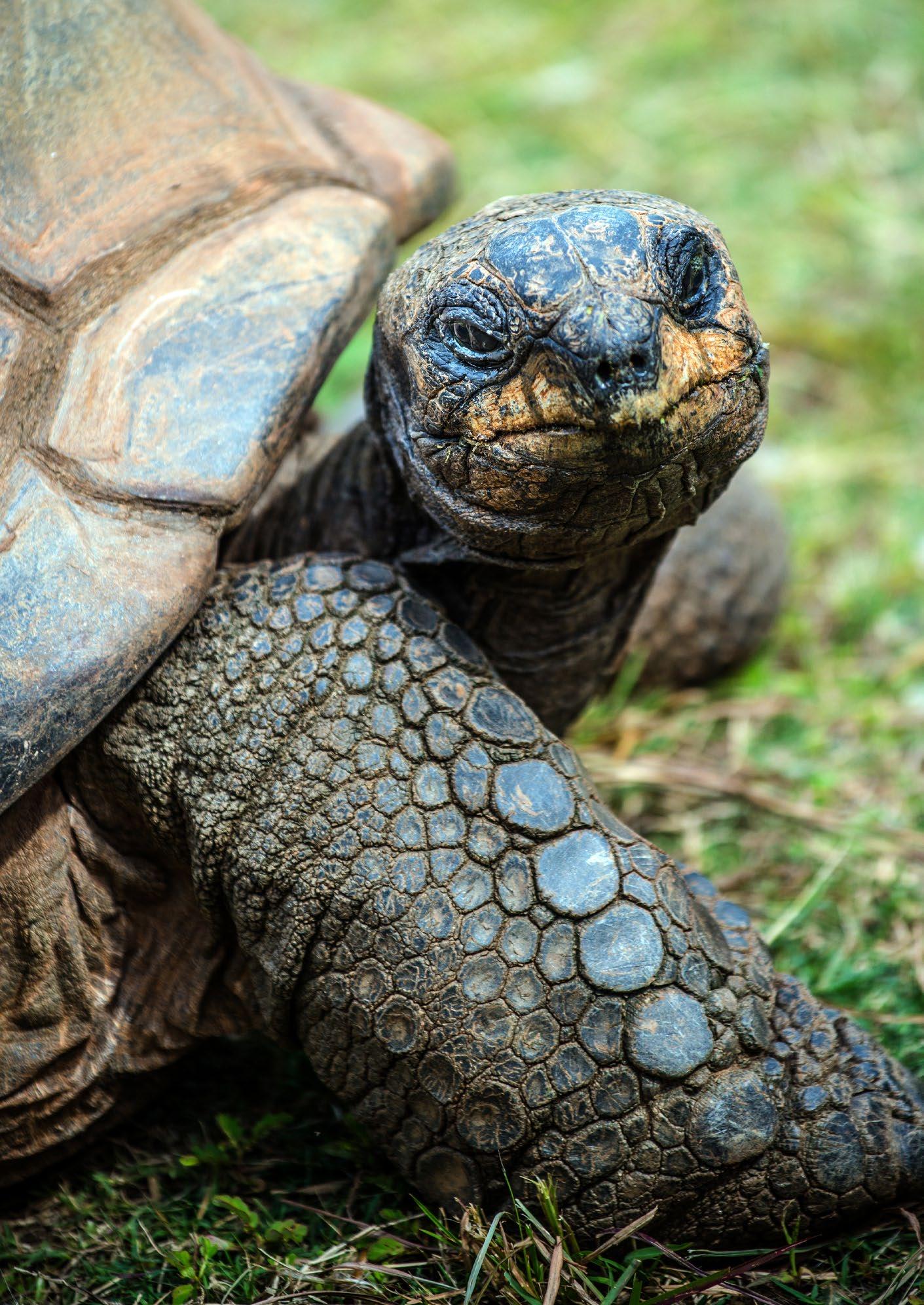
Achieving major operational wins and intensifying pressure on criminal networks
In 2024 , the WJC had its most impactful year yet, disrupting wildlife crime networks, delivering major operational wins, and intensifying pressure on criminal networks operating along the Africa-Asia nexus. Our greatest impact was seen in our investigations into pangolin scale trafficking networks in West Africa, where the WJC’s intelligence and investigative efforts directly contributed to the seizure of 12,214 kg of pangolin scales – representing 79% of all pangolin scales seized globally in 2024.
2024 statistics
84 arrests in 9 countries
8 high-value convictions
Each operational success has generated invaluable intelligence, driving our investigations deeper into the criminal networks and their cross-continental supply chains. The momentum gained this year places us in a strong position to escalate our efforts in 2025, further dismantling illicit networks and creating an increasingly hostile environment for wildlife traffickers. With these results, we are not only disrupting the illegal trade but also reshaping the landscape of wildlife crime enforcement on a global scale.
Successful operational engagement with 19 law enforcement partners
113 intelligence products disseminated to 48 law enforcement agencies in 28 countries
70 ground operations in 32 locations
1,100 kg of sea cucumbers seized
110 kg shark fins seized
12,214 kg of pangolin scales seized
1,580 live animals rescued, including reptiles, big cats, and primates
Ongoing disruption to ivory and pangolin scale trafficking networks in Nigeria
In 2024, our partnership with the Nigeria Customs Service continued with the arrest of 12 suspects in Nigeria, including a high-level shipper, a senior broker, and two major ivory and pangolin scale suppliers. It also resulted in the seizure of 11,673 kg of pangolin scales and 25 kg of ivory, including a record-breaking 7.2 metric ton stockpile—the largest single seizure in WJC history.
To date, this partnership has facilitated 17 joint operations, leading to 36 arrests, the seizure of 21.5 tons of pangolin scales and over one ton of ivory, and 12 successful convictions. Among those convicted are a Vietnamese kingpin, his two associates, and two high-level shipping facilitators behind Lagos-based organized crime networks. Our technical assistance has contributed to 94% of all pangolin scale seizures reported in Nigeria during this period.
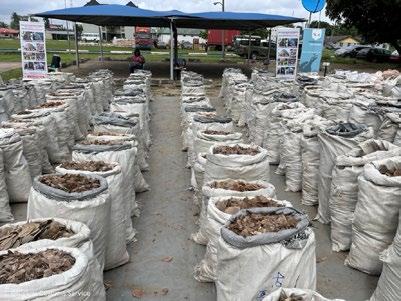
Intelligence suggests that sustained law enforcement action is severely disrupting criminal networks in Lagos. The continued arrests and prosecutions are making it increasingly difficult for traffickers to move large shipments from Apapa Port to Asia, contributing to notable changes in the criminal dynamics on the ground. There is a growing fear and distrust among the traffickers, and long-standing perceptions are shifting, with wildlife crime increasingly being viewed as a high-risk, low-reward criminal activity.
By maintaining relentless pressure, we are ensuring that Nigeria remains an increasingly hostile environment for wildlife traffickers, disrupting their operations and dismantling the networks responsible for largescale ivory and pangolin scale trafficking.
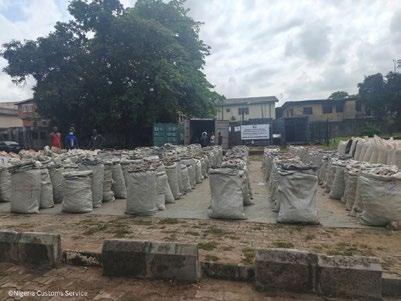
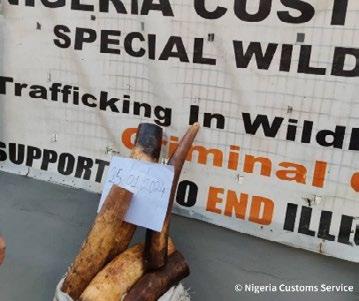
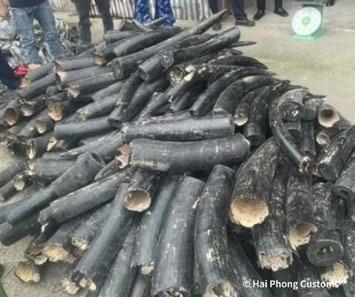
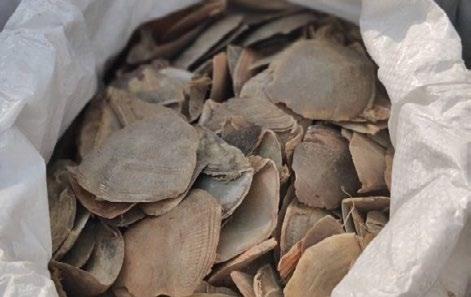
Breaking new ground in Marine investigations
2024 marked a significant milestone for the WJC, with our first major arrests stemming from marine investigations. Acting on intelligence from the WJC, law enforcement authorities in Latin America seized over one ton of sea cucumber valued at approximately USD 500,000 on the Asian market, along with 39 unprocessed shark fins. The kingpin of the sea cucumber trafficking network was arrested alongside four of his associates. Prior to his arrest, the key suspect had dismissed the risks of sea cucumber trafficking, stating that it was “not the drug business”. This operation sends a powerful
message: the landscape is shifting, and the risks of trafficking in protected marine species are increasing.
Additionally, the WJC carried out two joint operations with law enforcement partners in Asia, which together resulted in the seizure of 106 kg of sea cucumber, 100 kg of shark fins, and 25 kg of dried seahorses, as well as the arrest of six suspects.
These successful operations represent a critical step in enforcing marine protection laws and disrupting the large-scale trafficking networks that are supplying illegal marine products to the Asian market.
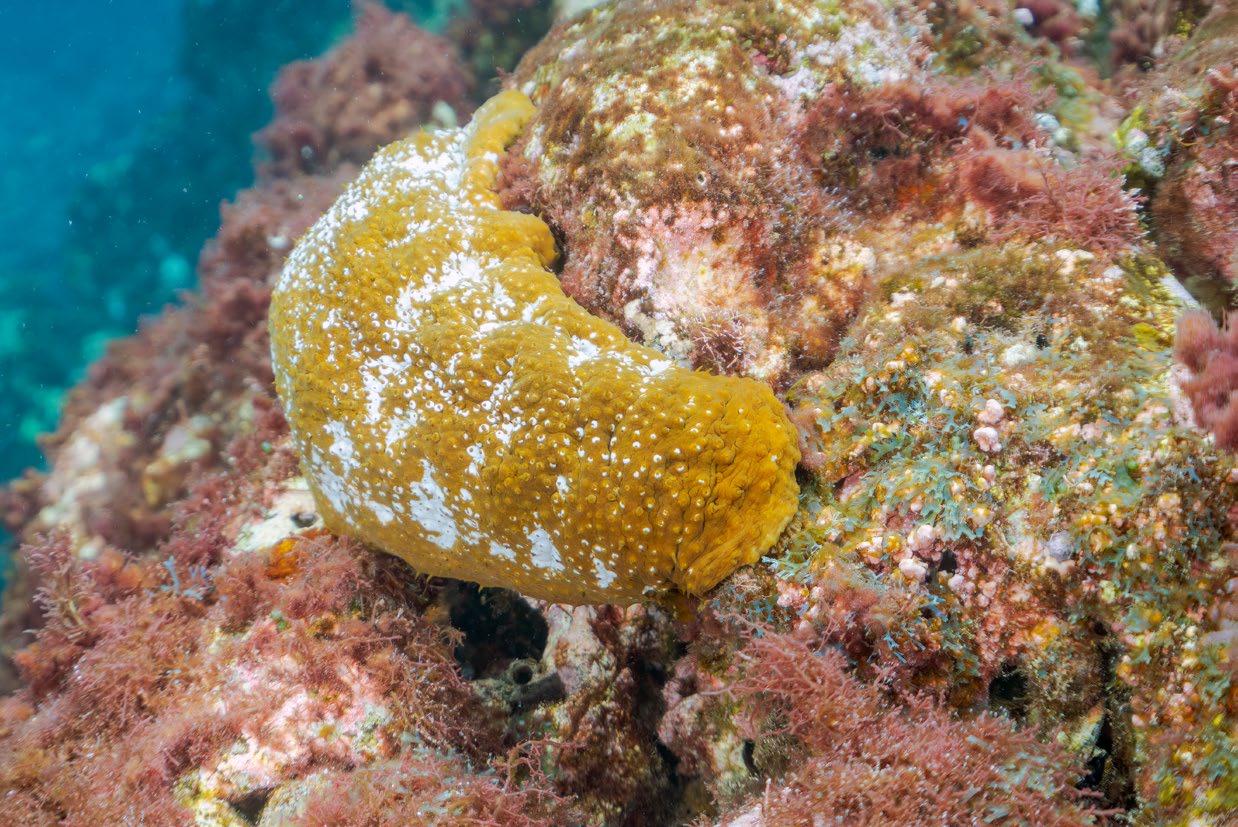
Showcasing one of our key strengths: Agility
In July, a joint operation with the Special Wildlife Investigation Unit in Liberia, supported by Focused Conservation, led to the arrests of two high-value brokers and two of their associates, along with the seizure of 525 kg of pangolin scales. The WJC’s intelligence analysts had identified links between one of the key Liberian suspects and a pangolin scale trafficking network in Nigeria. We facilitated the suspect’s arrest within six weeks of first identifying him.
This swift action demonstrates one of our greatest strengths: agility. Our ability to deploy quickly and act decisively enables us to follow new investigative leads and form strategic partnerships with law enforcement agencies in hotspots – as they emerge. This operation marks a significant step forward in our investigative strategy, extending pressure on wildlife trafficking networks operating across West Africa.
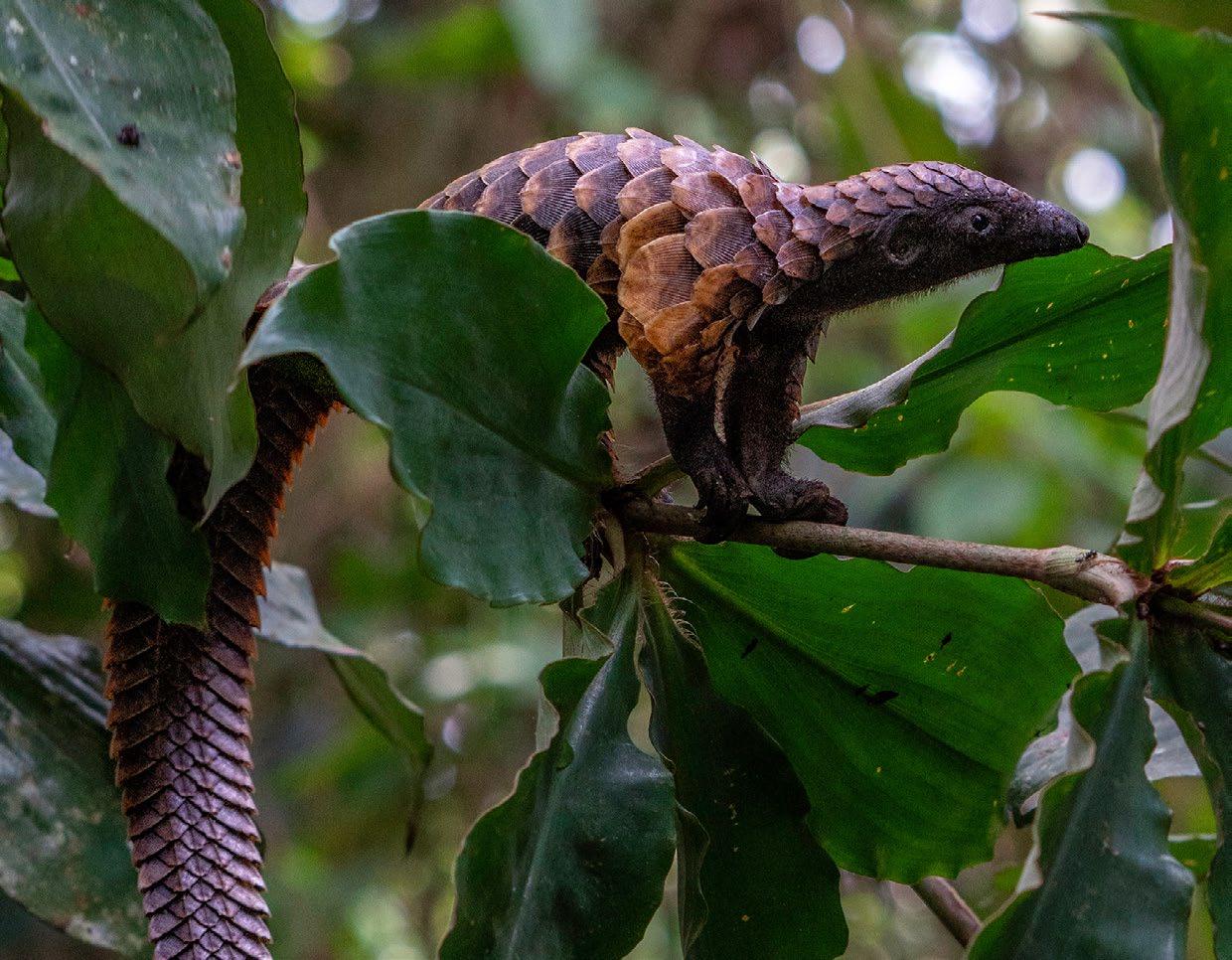
Disrupting a prolific, global criminal network profiting from the illegal pet trade
We conducted a major investigation into the illegal pet trade in 2024 by supporting Thai and Malagasy law enforcement agencies in dismantling a prolific criminal network that was smuggling rare and endangered species from Madagascar to trade in the global market for exotic pets.
In May, Thai authorities, acting on intelligence provided by the WJC, intercepted a four-vehicle convoy in southern Thailand transporting 1,061 radiated and spider tortoises and 48 lemurs. A further search of a farm connected to the suspects led to the seizure of an additional 173 radiated tortoises and other species. This operation represented the largest reported seizure of radiated tortoises in Thailand and the largest globally since 2018. These animals were successfully repatriated
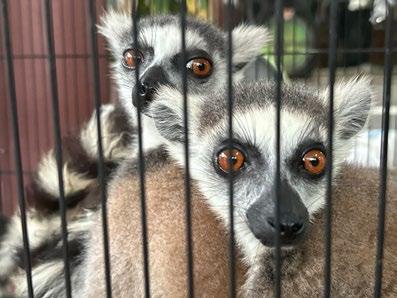
to Madagascar six months later, marking a significant milestone in the fight against wildlife trafficking.
The ongoing multi-agency investigation involves Thai and Malagasy law enforcement, as well as international partners such as the United States (US) Fish and Wildlife Service and the United Nations Office on Drugs and Crime, in collaboration with the WJC. The network has linkages stretching across Africa, Asia, and South America. To date, 19 suspects have been arrested, including the suspected kingpin in Thailand. The arrests, coupled with the financial loss to these criminals (estimated to be valued at more than USD 2 million), have disrupted this illicit network’s ability to continue its trafficking activities.
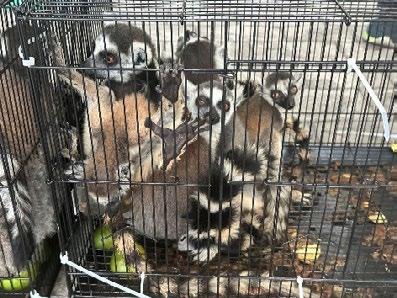
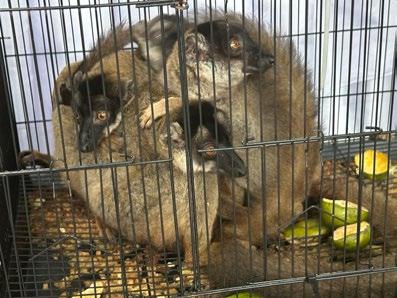
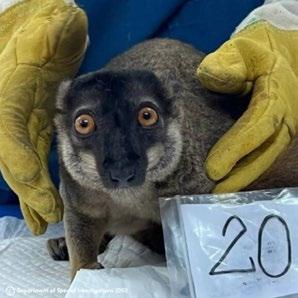
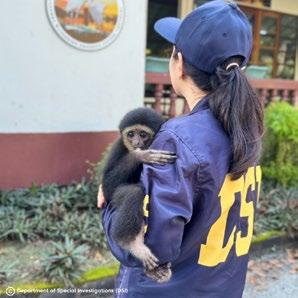
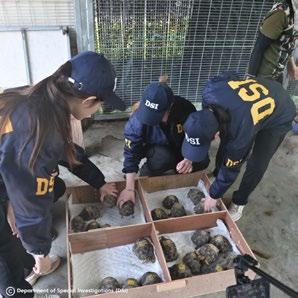
Big cats: High-level trafficker arrested in South Africa
Acting on intelligence from the WJC, the South African Police Service arrested a high-level Vietnamese wildlife trafficker and his South African associate. During the joint operation, the trafficker attempted to sell six lions to undercover operatives and introduced his associate, who led them to a farm where the lions were kept. Following the transaction, both suspects were swiftly apprehended by the South African Police Service in collaboration with other law enforcement units.
This arrest marks a key success in the WJC’s top tier targeting strategy, which aims to maximize disruptive impact by focusing resources on the leaders of the wildlife trafficking networks and other high-level trafficking enablers that facilitate the trade.
Across all its investigations in 2024, the WJC’s intelligence and investigation support contributed to the arrests of 13 suspects in three countries who were dealing in big cats, the rescue of one tiger cub and one fishing cat, and the seizure of three tiger and two leopard skins.
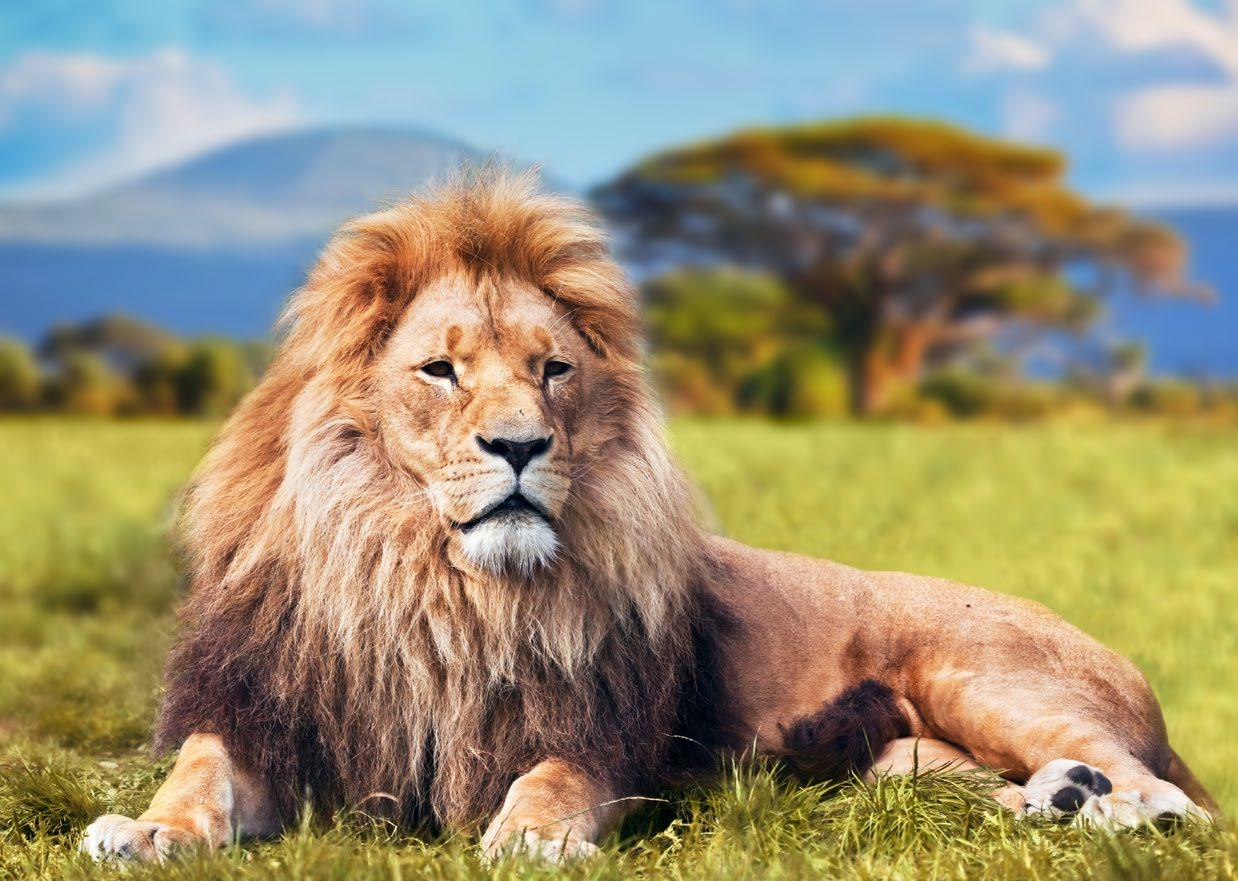
Advocating for global action against wildlife trafficking
Throughout the year, the WJC has played a pivotal role in elevating wildlife crime as a priority on the international agenda and shaping policy to enhance the global response to wildlife trafficking. We advocate for the recognition of wildlife trafficking as serious organized crime, enabling law enforcement agencies to deploy the same powerful investigative tools that are used against other transnational offenses. By providing recommendations based on our operational insights at the multilateral level, we encourage governments to adopt international policies that can be implemented by those on the front lines of the fight against wildlife crime.
In 2024, our recommendations were incorporated into four international policies and a new international convention at the Council of Europe. We actively participated in 13 high-level international conferences, contributing to heightened attention to wildlife trafficking on the global agenda and strengthened political commitment to combating environmental crime. Through strategic engagement and evidence-based advocacy with policymakers and partners, the publication of key policy briefs, written and oral interventions, and impactful events, we contributed to shaping key policy actions.
At the Council of Europe, the WJC participated, as one of the few observer NGOs, in negotiations for the draft Council of Europe Convention on the Protection of the Environment through Criminal Law. In this way, we contributed to ensuring stronger protections for wild fauna and flora in the text of the convention. This convention will provide a common global framework for tackling transnational environmental crime and will incorporate strong penalties to deter these crimes, including wildlife crime.
Another highlight was our participation in the preparatory process for the 12th Conference of the Parties
(COP) to the United Nations Convention against Transnational Organized Crime (UNTOC), where two resolutions on environmental crime were adopted. In line with our recommendations, these resolutions emphasize the critical need for financial investigations to effectively disrupt and dismantle criminal networks, as well as recognizing environmental crime, including wildlife trafficking, as a predicate offense for money laundering to enable asset seizure and confiscation. Our recommendations also highlight the importance of strengthening legislation, international cooperation, capacity-building, criminal justice responses, and law enforcement efforts to combat such crime. An intergovernmental expert group was established to review how the convention is applied to such crimes, identify gaps in the international legal framework, and enhance effective responses. The group’s findings will improve the practical implementation of measures to address environmental crime, including wildlife trafficking. The WJC remains actively engaged at the UNTOC to provide insights that will assist the expert group in making informed decisions that drive meaningful action. We will continue this work not only as WJC representatives, but also in our capacity as ViceChair of the Board of the Alliance NGOs on Crime Prevention and Criminal Justice and Co-Chair of its working group on crimes that affect the environment , helping to amplify the broader voice of civil society in these critical discussions.
This year, we intensified our efforts to highlight the urgent need to tackle corruption that enables wildlife crime throughout global supply chains. The United Nations Convention against Corruption (UNCAC) is the only legally binding international anti-corruption instrument. With 191 State Parties, this convention is a critical tool to prevent the corruption that enables environmental crime across supply chains. In our role as Chair of the UNCAC Coalition’s Working Group on En-
vironmental Crime and Corruption, which consists of over 230 civil society representatives, we have prioritized calls for a more holistic approach in addressing environmental crime, corruption, and other interlinkages, such as climate action. We co-authored a Discussion Paper on combating corruption and environmental crime to advance climate protection goals, which was published during the Climate COP29. We were also present at the International Anti-Corruption Conference, the world’s largest anti-corruption forum, where we raised awareness of the convergence between transnational corruption, environmental crimes, and other serious organized crime. The enhanced attention to this nexus was evident through the inclusion, for the first time, of a pledge to target environmental crimes as one of the conference’s main commitments in its outcome declaration. At the G20 level, we collaborated with partners to secure the inclusion of recommendations addressing the links between environmental crime, corruption, and illicit financial flows in a policy brief. This nexus was also acknowledged in the G20 Anti-Corruption Ministerial Declaration of October 2024. The commitments contained in the Declaration will significantly disrupt the criminal networks enabling environmental crime and support a more coordinated global response to combating corruption and its role in environmental degradation.
The WJC’s impact upon the criminal networks trafficking wildlife has been widely recognized in policy briefs and academic articles. Notably, we were recognized as one of the four key organizations contributing data to the United Nations Office on Drugs and Crime’s World Wildlife Crime Report 2024, which highlighted our role as a trusted authority in providing reliable data and intelligence that contribute to enhancing the global understanding of wildlife crime dynamics.
By recognizing and treating wildlife trafficking with the seriousness it deserves, we can disrupt these criminal networks and protect endangered species for future generations.
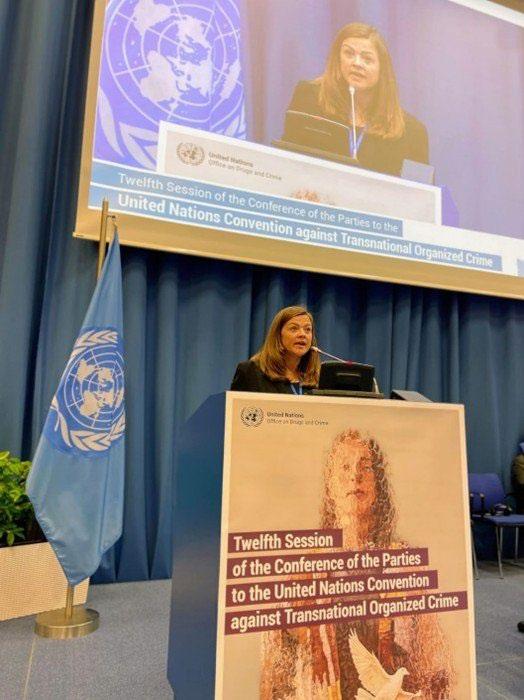
Strengthening law enforcement capabilities to combat wildlife crime
To address the threat of illegal wildlife trade and its links to organized crime, the WJC works closely with law enforcement agencies and governments to enhance their capability to address illegal wildlife trade by providing technical and operational support. In 2024, we conducted 16 specialized training programs across Mozambique, Botswana, the Philippines, and Thailand, focusing on intelligence-led investigations, operational support, and building sustainable law enforcement capability.
Mozambique
Mozambique plays a critical role in illegal wildlife trade, as it is a key exit point for ivory and rhino horn destined for Asia. Over the past five years, the WJC has built a strong partnership with Mozambique’s National Criminal Investigation Service (SERNIC), the agency responsible for tackling serious organized crime. With the support of the United Kingdom through the Illegal Wildlife Trade Challenge Fund and the Swedish Postcode Foundation, the WJC provided targeted training and mentoring in intelligence analysis and investigations to strengthen SERNIC’s ability to combat wildlife crime. We launched a groundbreaking empowerment project in collaboration with the Supreme Court of Mozambique and other key institutions, including the Attorney General’s Office, SERNIC, the Mozambique Tax Authority, the National Administration for Conservation Areas, the National Agency for Environmental Quality Control, and the Environmental Police. The initiative aims to significantly enhance the capability of state institutions to investigate and prosecute wildlife crime.
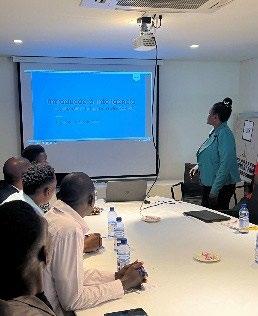
Botswana
In partnership with the Peace Parks Foundation’s Combating Wildlife Crime Unit, the WJC delivered its first specialized intelligence and investigative training for Botswana’s Department of Wildlife and National Parks and the National Anti-Poaching Unit. This training is part of Peace Parks’ Kavango Zambezi (KAZA) Joint Law Enforcement project, funded by the US Bureau of International Narcotics and Law Enforcement, which seeks to enhance cross-border collaboration within the KAZA Conservation Area to strengthen wildlife crime responses.
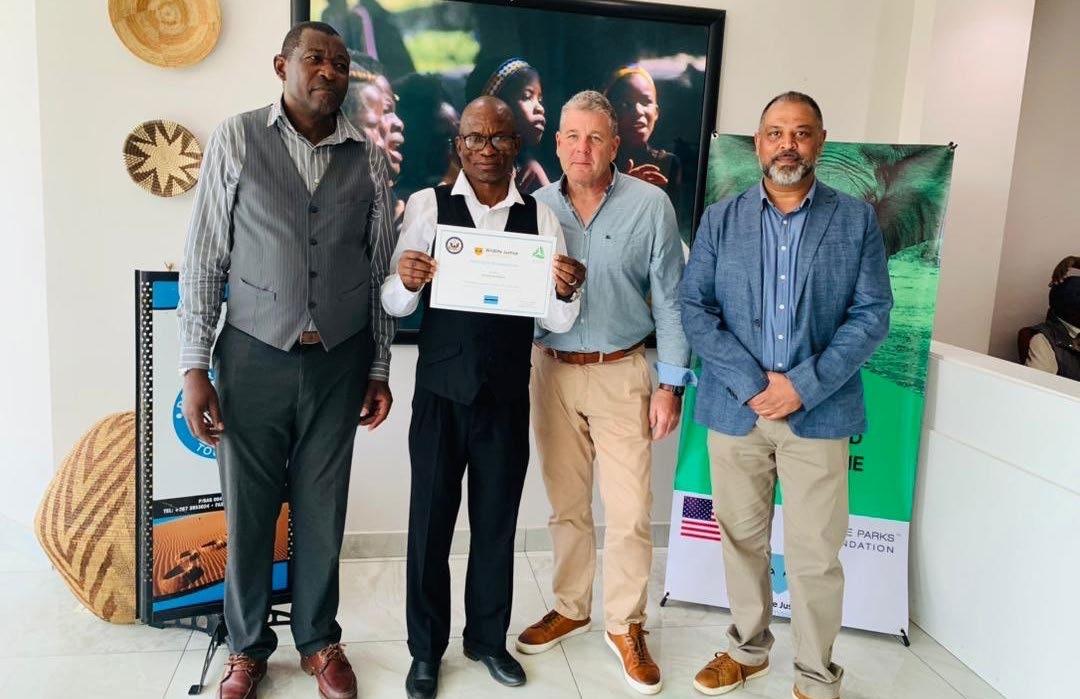
Philippines
The Philippines is an illegal wildlife trade hotspot, facing challenges such as low arrest and investigation rates and limited law enforcement capacity. The country also has a high volume of illegal wildlife trade occurring online. In support of TRAFFIC’s Project Taking Charge: Strengthening Criminal Justice Response to Wildlife Crime in the Philippines, we developed and delivered specialized training tailored to Philippine law enforcement needs to enhance investigative capacity to dismantle wildlife trafficking operations, particularly in the digital space.
Thailand
In September 2024, the WJC provided intelligence training to Thai law enforcement agencies at our Bangkok office, covering intelligence collection, management, analysis, and the application of internationally recognized grading standards. Emphasizing inter-agency collaboration, the program aimed to strengthen coordination in tackling wildlife crime within Thailand and the broader Southeast Asian region. This initiative was part of Project Galvanise, a wider effort to advance intelligence-led approaches in the fight against wildlife crime.
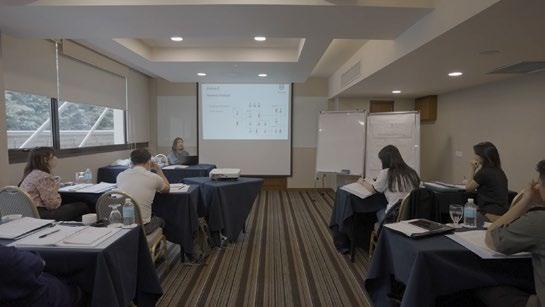
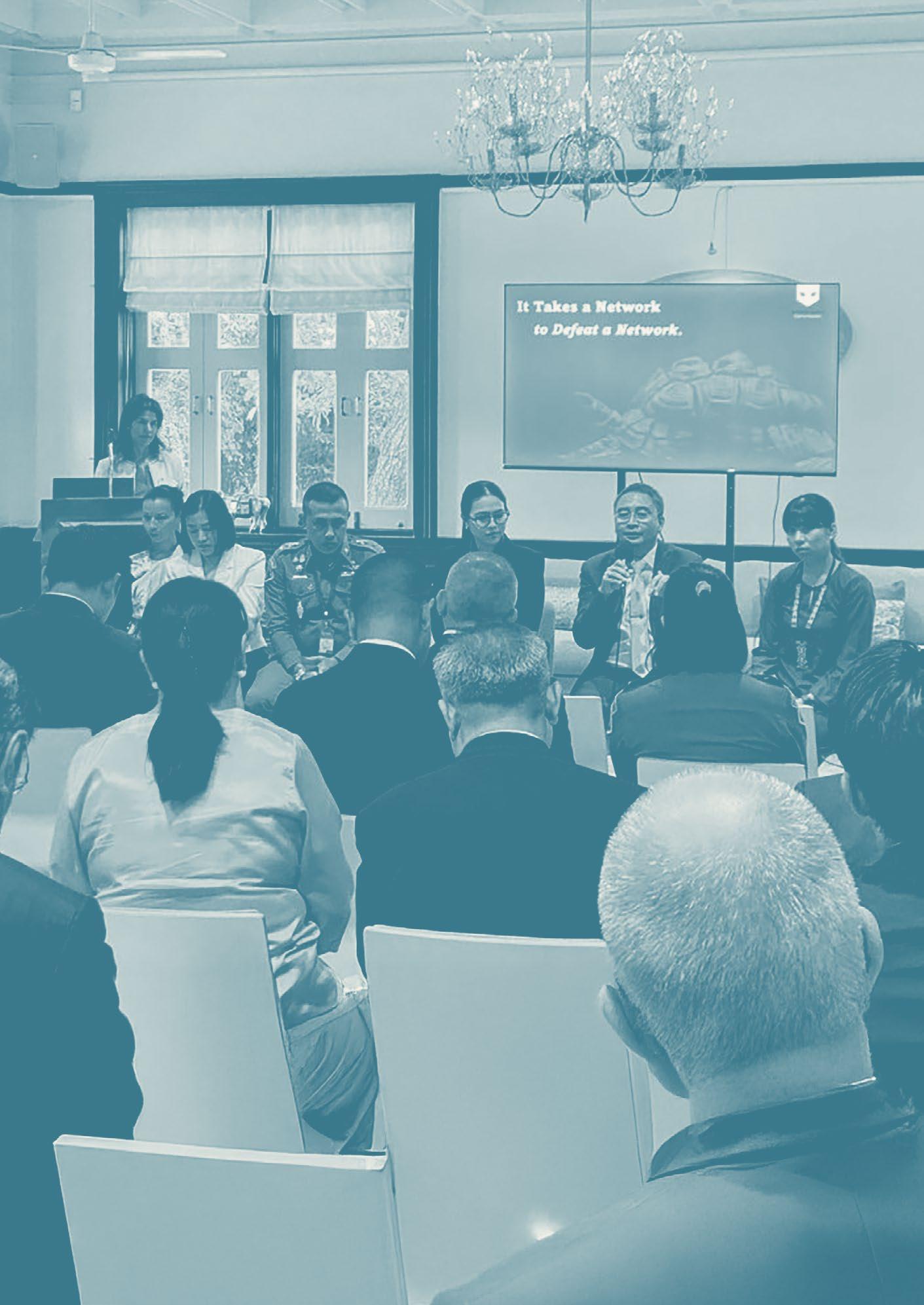
Project Galvanise: Strengthening intelligence-led approaches
The intelligence training provided in Thailand was one of many initiatives under Project Galvanise to enhance intelligence-led approaches to combat wildlife crime. Launched in April 2021 and funded by the Dutch Postcode Lottery, Project Galvanise enabled us to expand our in-house intelligence analysis capacity into a global hub and enhance our real-time efforts to combat and disrupt wildlife trafficking. As the first of its kind, this initiative played a crucial role in supporting multinational efforts to tackle wildlife crime across Southeast Asia. We successfully concluded this project in 2024. Over the past three years, Project Galvanise strengthened intelligenceled approaches to wildlife crime, drove real-time intelligence use, and fostered strategic collaboration with law enforcement agencies, non-governmental organizations, and key stakeholders. A dedicated team of intelligence analysts was trained and embedded within key organizations, which led to improved intelligence-sharing and investigative capabilities. The project also facilitated the completion of critical threat assessments and provided direct investigative support to law enforcement.
A major milestone of Project Galvanise was the development and launch of the Online Resource Center for Analysis (ORCA)—an online platform to support intelligence analysts working on wildlife crime. ORCA fosters a collaborative environment where analysts can exchange knowledge, enhance their expertise, and access resources to strengthen intelligence-driven enforcement strategies. Sixty-three analysts from 19 countries and 23 organizations are connected to the platform, reinforcing crossborder cooperation and intelligence-sharing for a more coordinated response to wildlife trafficking.
Project Galvanise played a key role in shaping policy discussions through the publication of multiple reports, training sessions and events, and engagement with policymakers and stakeholders to advocate for intelligence-driven enforcement strategies. The project also laid the foundation for long-term institutional improvements, including the establishment of an intelligence and online wildlife trade monitoring team within the Department of Forestry Inspection in Laos PDR.
By embedding intelligence-driven approaches into enforcement efforts and fostering collaboration across the region, Project Galvanise has left a lasting legacy that will continue to support the fight against wildlife crime well beyond the project’s conclusion.
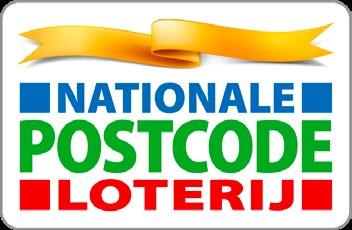
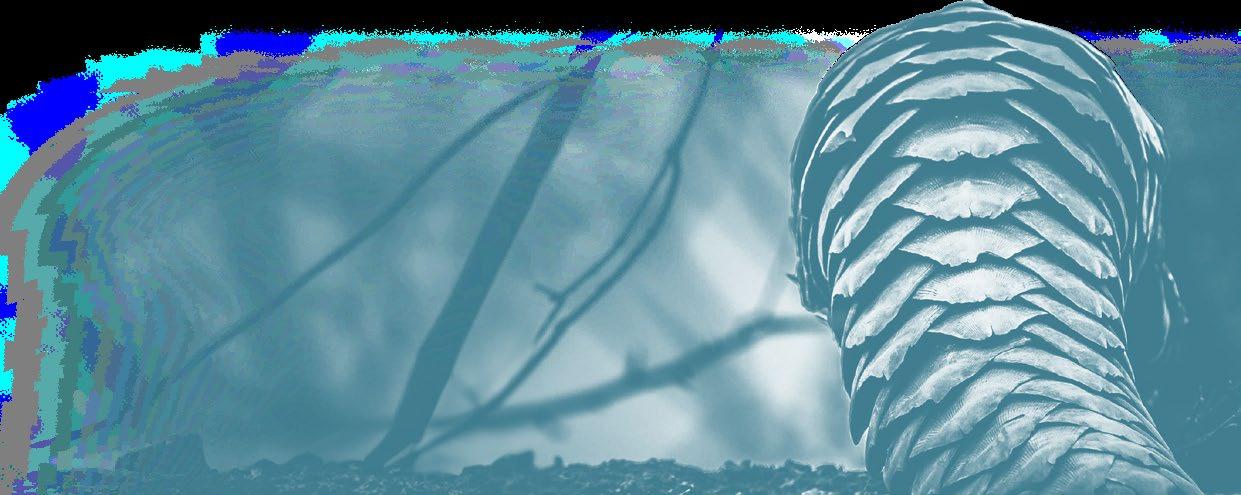
Seizure: Our award-winning short film
Project Galvanise also highlighted the urgent need to raise awareness and mobilize global action against wildlife trafficking. To reinforce this message, the WJC produced the short film Seizure, which exposes the vast scale of the illegal wildlife trade and underscores the critical role of intelligence analysis in dismantling criminal networks, particularly in Southeast Asia. Beyond raising awareness, Seizure aims to enhance political will at key multilateral and non-traditional fora, urging stakeholders to recognize wildlife trafficking as a serious crime requiring global action. The film premiered as a finalist at the Kuala Lumpur Eco Film Festival and went on to win Best Short Documentary at both the Activists Without Borders International Film Festival and the Swedish International Film Festival. It was also awarded Best Documentary at the New Media Film Festival. It received an Outstanding Excellence Award at the Nature Without Borders International Film Festival and the Documentaries Without Borders International Film Festival, along with an Honorable Mention from the Lookout Wild Film Festival. Seizure is set for official release in 2025.
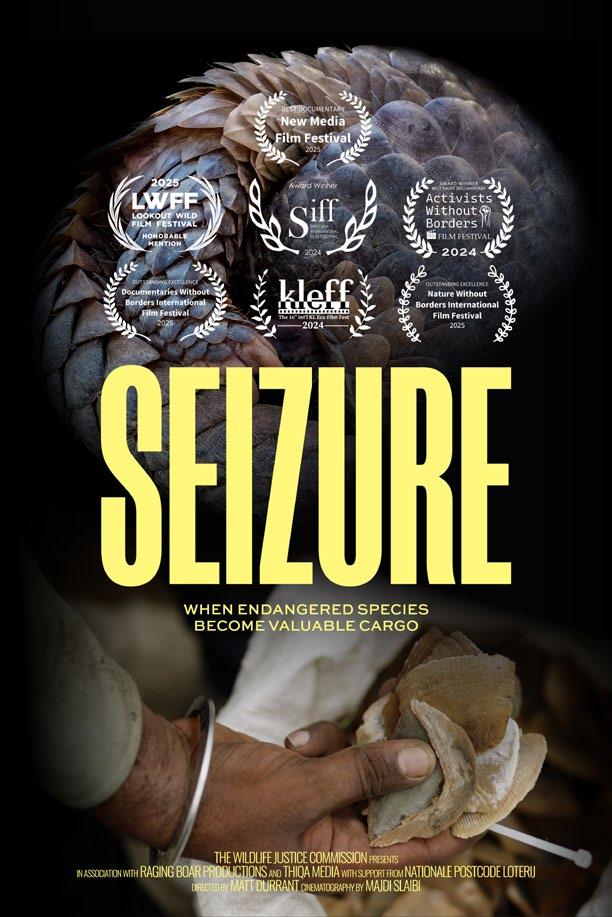
In the media
In 2024, the WJC played a pivotal role in several major wildlife crime investigations, further establishing itself as a leading authority on the illegal wildlife trade. Our expertise was frequently sought out by international media, with the WJC’s work featured in 113 news reports worldwide. This growing media presence reflects increasing recognition of the devastating impact of wildlife crime and the urgent need for action.
One of the year’s most high-profile stories was a major operation in Thailand targeting the illegal pet trade. The investigation uncovered a sophisticated trafficking network dealing in endangered species, including radiated tortoises and lemurs, with links to criminal networks in Madagascar. This landmark case led to the historic repatriation of nearly 1,000 animals and garnered extensive global media attention. Major outlets, including the BBC, Al Jazeera, People Magazine , Mongabay, and many others covered the operation, highlighting the WJC’s crucial role in the rescue of these animals. We were honored to have the opportunity to discuss the illegal pet trade and its broader implications in an interview on BBC Radio, further reinforcing the WJC’s reputation as a trusted expert on wildlife crime.
Another success in 2024 was the conviction of Simon Valoi, known as “Navara,” a key figure in the rhino horn trade. His sentencing to 27 years in prison was a landmark victory in the fight against poaching syndicates. The case received widespread media coverage, with the Daily Maverick emphasizing its significance in dismantling organized poaching and trafficking networks and underscoring the WJC’s critical intelligence contributions to his arrest and prosecution. In Nigeria, the WJC’s intelligence-driven collaboration with the Nigeria Customs Service resulted in
significant seizures and arrests, disrupting ivory and pangolin trafficking operations. This successful partnership was widely reported in The Guardian Nigeria and Mongabay, which featured in-depth coverage of the WJC’s role in these enforcement actions.
Vrij Nederland , a leading Dutch magazine, published an investigative feature on the illegal reptile trade in Europe. Drawing on the WJC’s unique insights and expertise, the magazine exposed the scale and complexity of these criminal networks.
The increasing visibility of the WJC’s work in global media underscores the impact of our efforts in combating transnational wildlife crime and protecting endangered species. As we continue to expose and dismantle these illicit networks, we remain a key source of intelligence and expertise for journalists and media outlets worldwide.
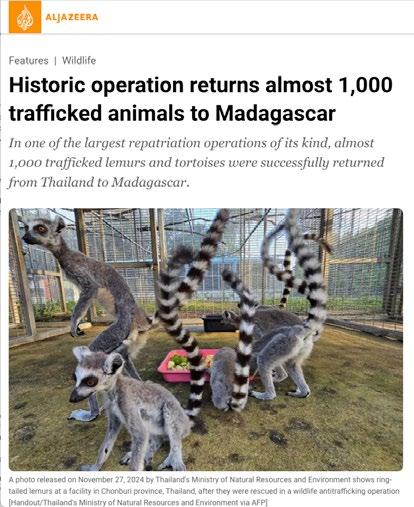
Social media
In an ever-evolving digital landscape , we strive to adapt our social media approach to ensure that our message reaches and engages a diverse global audience. In 2024, we introduced new initiatives across our social media platforms, particularly on Instagram and Facebook, to enhance our engagement
and expand our reach. These efforts contributed to a 19% increase in our total follower base, bringing it to 20,192 by December 2024. As digital trends shift and audience behaviors change, we remain committed to fostering meaningful engagement to raise awareness about wildlife crime.
Award-winning Wildlife Kingpin podcast series
The Wildlife Kingpin podcast series, offering an indepth exploration of the dark world of wildlife crime through groundbreaking investigations, received critical acclaim in 2024. The Rise and Fall of Ah Nam follows a team tracking one of Asia’s largest elephant and rhino traffickers, while Operation Dragon
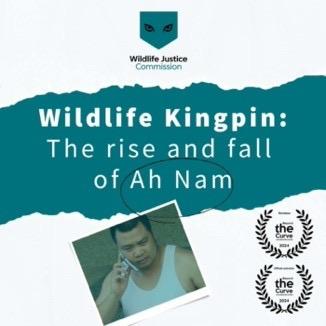
showcases the WJC’s efforts to dismantle a major turtle and tortoise trafficking network in Southeast Asia. Both seasons were nominated for Best Podcast at the Beyond the Curve International Film Festival, with Operation Dragon taking home the award.

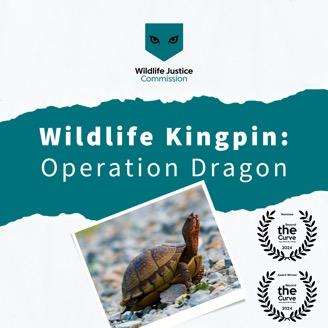
WJC’s chronicles in Terrible Humans by Patrick Alley
The WJC’s investigative work was featured in Terrible Humans, the highly anticipated book by Patrick Alley, a staunch ally in the fight against environmental crime through his pioneering work with Global Witness. Mr Alley devoted an entire chapter to the WJC’s investigations, drawing powerful insights from our team and their firsthand experiences.
The chapter offers readers an immersive behind-thescenes look at our operations, including a three-year
investigation targeting Ah Nam, a wildlife kingpin in Vietnam, which led to the dismantling of a multimillion-dollar trafficking market and the arrest of this wildlife kingpin. The book also covers two other successes: the capture of Navara, a notorious rhino poaching kingpin in Mozambique, and the arrest of Teo Boon Ching, a major global wildlife trafficker specializing in rhino horn, ivory, and pangolin scales in Thailand.

Our partners
Thanks to the support of our donors and partners, 2024 has been the WJC’s most successful year yet. Wildlife crime continues to threaten the survival of endangered species, disrupt ecosystems, and fuel broader challenges, such as risks to human health, climate change, and global security. Our ability to combat these transnational criminal networks is only possible because of the dedicated supporters who share our vision of a world without wildlife crime and place their confidence in our mission.
We extend our sincere gratitude to the following lotteries, foundations, government institutions, and non-profit organizations that have made this work possible.
We also offer special thanks to the generous donors who wish to remain anonymous and to the countless individuals who support our fight against wildlife crime.










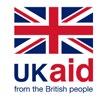




The magic of unrestricted funding
At the WJC, results speak for themselves. Our intelligence-driven investigative approach is proven to dismantle the key players in criminal networks. But the nature of our work is unpredictable: traffickers constantly adapt, shifting routes, markets, and species. To stay ahead of them, we must be ready to act when the opportunity arises, often without warning.
This is why unrestricted funding is a strategic imperative. It enables us to deploy operatives in real time, respond to emerging threats, and pursue high-level targets without delay. When criminal networks shift their operations, unrestricted funding allows us to pivot and intervene, whether in a new market or with an unanticipated species. It is the magic ingredient that ensures we act when it matters most.
Beyond investigations, unrestricted funding empowers us to strengthen every aspect of our mission. It allows us to invest in cutting-edge intelligence systems, enhance our impact measurements, and engage decision-makers to advance policies that hold traffickers accountable. It fuels innovation, ensuring we continuously refine and improve our approach to tackling wildlife crime.
We are especially grateful to those donors who provide unrestricted funding, trusting us to direct their support where it will have the greatest impact. Thank you.
Olivia Swaak Goldman Wildlife Justice Commission, Executive Director
“The Wildlife Justice Commission needs to be as agile as the criminal networks we seek to disrupt.”
Dr Catherine Docherty Senior Manager, Nature, Arcadia
“Arcadia has been impressed by the Wildlife Justice Commission’s achievements. We look for organizations that have strong leadership which are cost-effective, collaborative, evidence-led, and ethical. Wildlife Justice Commission exemplifies these qualities, and our donors believe that unrestricted funding is the best way to help it protect biodiversity and empower those who are on the frontline of tackling wildlife crime.”
Marieke Rodenhuis
Head Charity department Nationale
Postcode Loterij
“The Dutch Postcode Lottery was founded in 1989 to raise funds for charities working towards a fair, healthy and green world. The lottery aims to be a reliable funding partner, offering annual and unrestricted support to 147 charitable organizations. With a strong commitment to providing its partners with long-term and unrestricted funding, the lottery’s charity partners have the freedom to use funding where it is needed most, enabling them to achieve maximum positive impact. We are proud that thanks to all our players we are able to support the Wildlife Justice Commission in their mission to protect wildlife against organised wildlife crime.”
Jane Goodall Zoologist, primatologist and anthropologist
“The Wildlife Justice Commission has significantly contributed to shifting the perception of wildlife crime, transitioning it from a low risk, high reward industry to one where the risks outweigh the benefits.”
In-kind supporters




The team at the Wildlife Justice Commission
The WJC consists of Stichting WJC, a Dutch foundation; WJC International, a US non-profit; and WJC Investigations, a US non-profit, which has a branch office in Thailand. These entities have entered into an affiliation agreement with each other. Information about our board members and senior management is available on the WJC’s public website. Members of the boards are not remunerated; the remuneration of members of senior management follows local standards in the relevant jurisdiction. Each entity of the WJC Family has adopted the necessary rules, regulations, and guidelines to which its personnel
are subject, including codes of conduct, conflict of interest policies, whistleblower policies.
The WJC is privileged and proud to employ staff of various nationalities, cultures, languages, and opinions. The WJC’s highly skilled professional team is comprised of personnel from 30 different countries. Our people are at the core of our mission, and the WJC’s impact is driven by the range of informed perspectives, experiences, and capabilities that our team brings to the Wildlife Justice Commission.
Balance sheet as per 31 December 2024
Current assets
Receivables
Equity and liabilities
Income statement 2024
Key figures
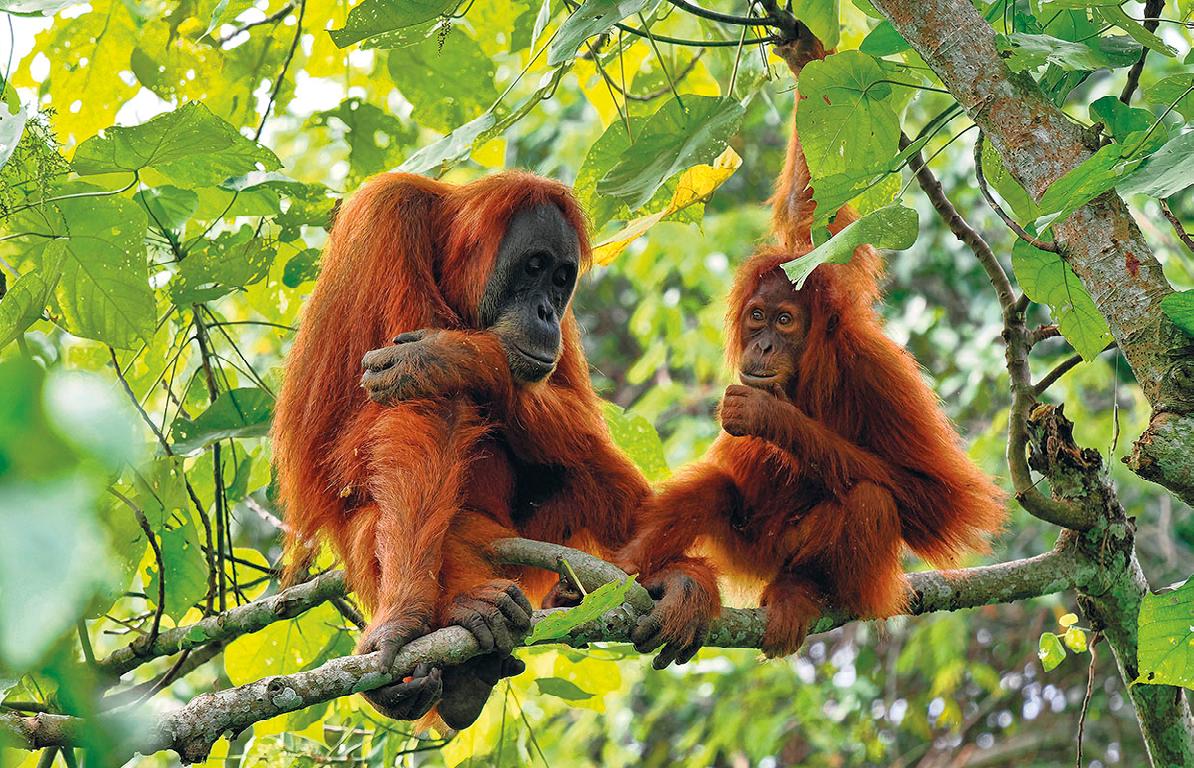
Beuk Audit B.V. Stationsweg 103 PO Box 419 1981 BB Velsen-Zuid T: +31 (0)255 53 40 74 info@beukaccountants.nl KVK: 72472855 www.beukaccountants.nl
To the board of directors
Stichting Wildlife Justice Commission
Johan de Wittlaan 2517 JR 'S-GRAVENHAGE
We hereby offer you the report concerning the annual report 2024 for Stichting Wildlife Justice Commission, 's-Gravenhage.
INDEPENDENT AUDITOR'S REPORT
Report on the audit of the financial statements 2024
Our opinion
We have audited the financial statements 2024 of Stichting Wildlife Justice Commission, based in 'sGravenhage.
In our opinion, the accompanying financial statements give a true and fair view of the financial position of Stichting Wildlife Justice Commission as at 31 December 2024, and of its result for 2024 in accordance with tthe Dutch Guidelines for Annual Reporting 650 Fundraising Organizations.
The financial statements comprise:
1. the balance sheet as at 31 December 2024; 2. the statement of activities for the year 2024; and 3. the notes comprising a summary of the accounting policies and other explanatory information.
Basis for our opinion
We conducted our audit in accordance with Dutch law, including the Dutch Standards on Auditing. Our responsibilities under those standards are further described in the 'Our responsibilities for the audit of the financial statements' section of our report.
We are independent of Stichting Wildlife Justice Commission in accordance with the Verordening inzake de onafhankelijkheid van accountants bij assurance-opdrachten (ViO, Code of Ethics for Professional Accountants, a regulation with respect to independence) and other relevant independence regulations in the Netherlands. Furthermore we have complied with the Verordening gedrags- en beroepsregels accountants (VGBA, Dutch Code of Ethics).
We believe the audit evidence we have obtained is sufficient and appropriate to provide a basis for our opinion.
STICHTING WILDLIFE JUSTICE COMMISSION
'S-GRAVENHAGE
Report on the other information included in the annual report
In addition to the financial statements and our auditor's report thereon, the annual report contains other information that consists of:
- The management report;
- Other information as required by the Dutch Guidelines for Annual Reporting 650 Fundraising Organizations.
Based on the following procedures performed, we conclude that the other information:
- Is consistent with the financial statements and does not contain material misstatements;
- Contains all the information required by the Dutch Guidelines for Annual Reporting 650 Fundraising Organizations.
We have read the other information. Based on our knowledge and understanding obtained through our audit of the financial statements or otherwise, we have considered whether the other information contains material misstatements.
By performing these procedures, we comply with the requirements the Dutch Guidelines for Annual Reporting 650 Fundraising Organizations and the Dutch Standard 720. The scope of the procedures performed is substantially less than the scope of those performed in our audit of the financial statements.
Management is responsible for the preparation of the management report in accordance with the Dutch Guidelines for Annual Reporting 650 Fundraising Organizations
Description of responsibilities regarding the financial statements
Responsibilities of the board and supervisory board for the financial statements
The board is responsible for the preparation and fair presentation of the financial statements in accordance with RJ 640 nonprofit organizations. Furthermore, the board is responsible for such internal control as the board determines is necessary to enable the preparation of the financial statements that are free from material misstatements, whether due to fraud or error.
As part of the preparation of the financial statements, the board is responsible for assessing the entity's ability to continue as a going concern. Based on the financial reporting framework mentioned, the board should prepare the financial statements using the going concern basis of accounting unless the board either intends to liquidate the entity or to cease operations, or has no realistic alternative but to do so.
The board should disclose events and circumstances that may cast significant doubt on the entity's ability to continue as a going concern in the financial statements.
The supervisory board is responsible for overseeing the company's financial reporting process.
STICHTING WILDLIFE JUSTICE COMMISSION
'S-GRAVENHAGE
Our responsibilities for the audit of the financial statements
Our objective is to plan and perform the audit engagement in a manner that allows us to obtain sufficient and appropriate audit evidence for our opinion.
Our audit has been performed with a high, but not absolute, level of assurance, which means we may not detect all material errors and fraud during our audit.
Misstatements can arise from fraud or error and are considered material if, individually or in the aggregate, they could reasonably be expected to influence the economic decisions of users taken on the basis of these financial statements. The materiality affects the nature, timing and extent of our audit procedures and the evaluation of the effect of identified misstatements on our opinion.
We have exercised professional judgement and have maintained professional scepticism throughout the audit, in accordance with Dutch Standards on Auditing, ethical requirements and independence requirements. Our audit included among others:
- identifying and assessing the risks of material misstatement of the financial statements, whether due to fraud or error, designing and performing audit procedures responsive to those risks, and obtaining audit evidence that is sufficient and appropriate to provide a basis for our opinion. The risk of not detecting a material misstatement resulting from fraud is higher than for one resulting from error, as fraud may involve collusion, forgery, intentional omissions, misrepresentations, or the override of internal control;
- obtaining an understanding of internal control relevant to the audit in order to design audit procedures that are appropriate in the circumstances, but not for the purpose of expressing an opinion on the effectiveness of the the entity's internal control;
- evaluating the appropriateness of accounting policies used and the reasonableness of accounting estimates and related disclosures made by the board;
- concluding on the appropriateness of the board's use of the going concern basis of accounting, and based on the audit evidence obtained, whether a material uncertainty exists related to events or conditions that may cast significant doubt on the the entity's ability to continue as a going concern. If we conclude that a material uncertainty exists, we are required to draw attention in our auditor's report to the related disclosures in the financial statements or, if such disclosures are inadequate, to modify our opinion. Our conclusions are based on the audit evidence obtained up to the date of our auditor's report. However, future events or conditions may cause a company to cease to continue as a going concern.
- evaluating the overall presentation, structure and content of the financial statements, including the disclosures; and
- evaluating whether the financial statements represent the underlying transactions and events in a manner that achieves fair presentation.
We communicate with those charged with governance regarding, among other matters, the planned scope and timing of the audit and significant audit findings, including any significant findings in internal control that we identify during our audit.
STICHTING WILDLIFE JUSTICE COMMISSION 'S-GRAVENHAGE
Velsen-Zuid, 16 July 2025
Beuk Audit B.V.
Was signed P.van der Kolk RA MSc
28/28
Join our fight against wildlife crime
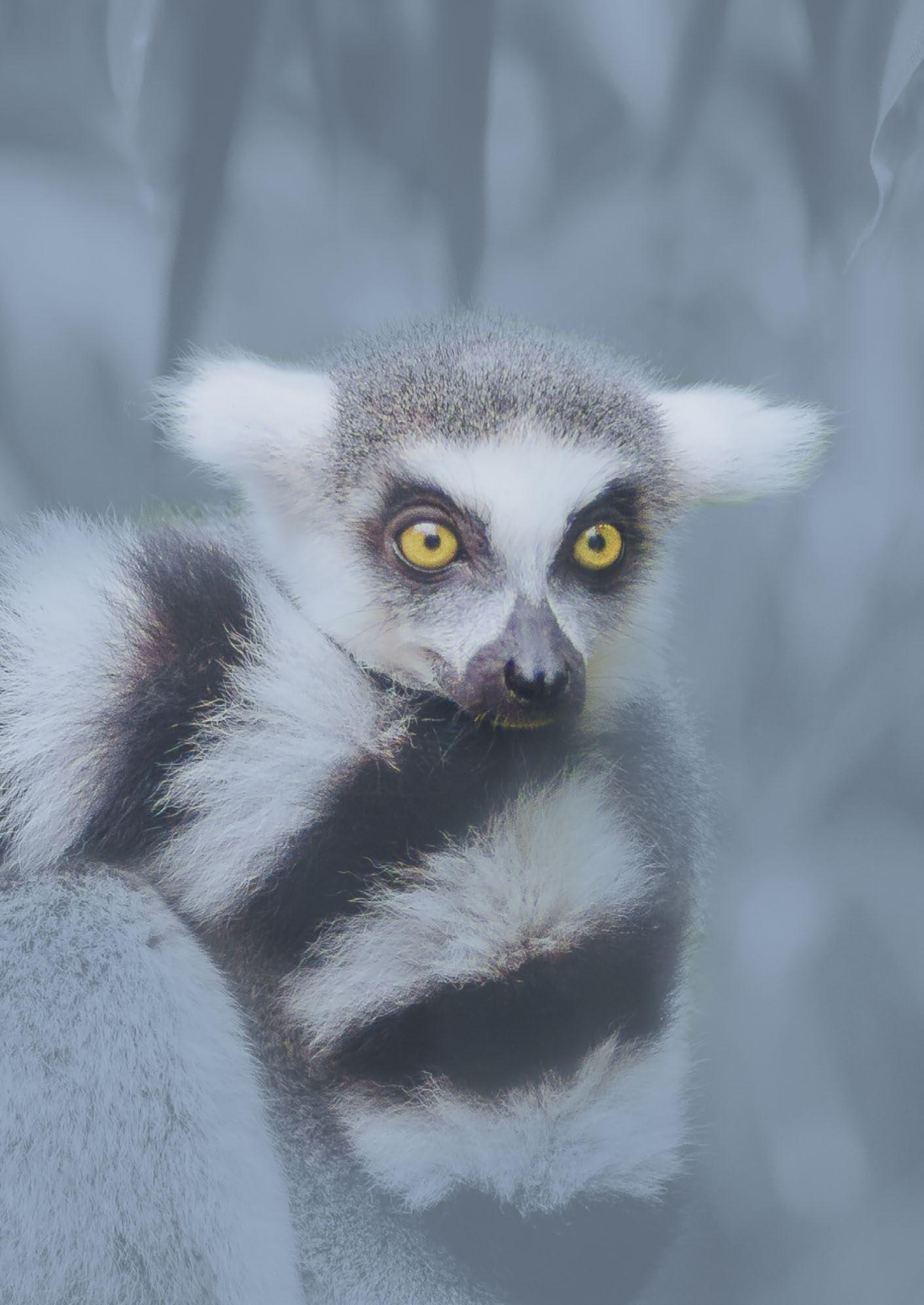
Take up our banner:
Share our mission.
Make use of our findings.
Stay up to date on our latest news and investigations.
SUBSCRIBE TO OUR NEWSLETTER
Support our work directly.
READ DONATE
JOIN US
Law enforcement and legal experts fighting transnational organised wildlife crime.
www.wildlifejustice.org
